Accounting software is the primary operational tool for bookkeepers and accountants. With a large selection of products available on the market, it might be difficult to make the right choice. Over the last 6 years, Synder has helped 5,000+ accounting and bookkeeping professionals and businesses to streamline their processes and increase productivity. What’s the secret here? We’re talking to our customers and tap into their needs and requests. Keeping tabs on the changing landscape and ever evolving challenges of modern accounting, we know what features and functionalities solve major issues crippling the work of most accounting firms. What’s more, we’re aware of much smaller and unique demands of accounting professionals, which are conditioned by their clients’ specifics. This hands-on experience makes us experts in what we do and what accounting firms require. That’s why we’ll help you pick the software that best addresses the unique needs of your accounting firm and your clients.
In this article, we’ve compiled a list of reliable solutions, paying attention to the most important features for accounting professionals. Time is the most valuable commodity, so we’ll jump straight to the list of the best accounting software for your accounting needs. Then, we’ll cover a few guiding principles you need to consider when navigating through the options and evaluating the features. Without further ado, let’s get started!
Best accounting software for bookkeepers
1. Synder Sync
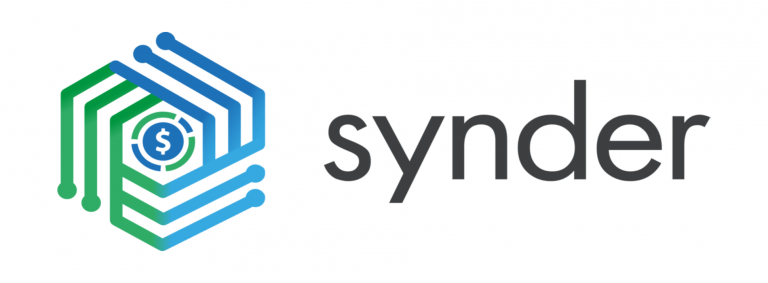
A quick overview of accounting software
Having e-commerce clients calls for a special type of software. Synder offers exactly that – it’s a solution for all the bookkeepers and accountants working with e-commerce businesses. With Synder, you’ll get a bridge that will sync all your clients’ platforms and payment processors, prepare the books for smooth reconciliation, and provide you with the full picture of your clients’ business performance. Synder integrates with QuickBooks, QuickBooks Desktop and Xero, ensuring the maximum accuracy of the books and the SOC-2 level of data security.
Key features of the software
All-in-one solution with 25+ integrations
Synder Sync offers the largest list of integrations from all accounting software, syncing platforms like Amazon, Shopify, Etsy, and eBay, and payment processors like Stripe, PayPal, Square, etc. New integrations are being added regularly. The platforms and payment processors are synced together in one source of truth and all transactional data is collected accurately and automatically in one single source of truth.
Visit Synder’s integration page to see the full list of available integrations.
Two modes of syncing transactional data
To cater to a wide range of clients, both with low and high transaction volumes, Synder offers two varieties of data synchronization. A small business usually needs detailed transactional information, including sales, customer and product details in their books, which is best delivered with Synder’s Per Transaction sync mode. A clients with larger transactional volumes requires more general information featuring summarized daily journal entries per platform, which is easily achieved with the Daily Summary sync mode. Choose the mode which fits your clients’ needs best and either enjoy detailed sales records or easily review your clients’ monthly transactions.
Learn more about daily summary sync.
Accurate reports and stress-free reconciliation
Major reports, such as P&L and balance sheets are created in accounting systems automatically, you simply choose the timelines or dates, and have your report ready with a click. You can arrange the data in your P&L the way you want and have it displayed by many categories including product, payment processor, location, and many more.
Accurate reporting helps to significantly ease the reconciliation process. The tool pulls all the necessary details from connected platforms, such as fees, payouts, sales, and makes reconciliation really smooth, saving you lots of time and stress.
Learn more about how Synder creates P&L and Balance Sheet reports and helps with reconciliation preparation.
Automated categorization
Across many sales channels and payment processors, there are bound to be differences in which information gets classified that in turn can cause some missing data. A great way to help you with the categorization of your transactions is automated categorization. It uses a very intuitive, no-code, if-then design that lets you set up rules and streamline your final reports. This not only ensures that all your transactions are categorized the same way, but also gives you a bridge between channels by filling in the gaps in data according to the rules you make.
Learn more about automated categorization.
Personal setup call and top-rated customer support
Synder lives by the motto ‘Machine accuracy, human approach’, and that’s seen in the seamless technology, first-class customer support and countless reviews showing user satisfaction.
Small business or large organization, no client is the same and there almost always has to be some degree of customization. Accounting professionals benefit from personalized one-on-one setup calls, where they get hands-on advice on how they can customize the tool to specific requirements of their clients and make sure it solves their pain points.
Synder’s customer support is available 24/7 via phone, video, chat, or email – whatever suits you. Whether it’s onboarding or solving your specific queries, Synder support team is always there for you and will provide necessary support all the way through.
Great value features – convenient multi-client management and exclusive perks
What sets Synder apart from other solutions is the ability to easily switch between clients. Accounting and bookkeeping professionals can not only link various platforms within a single client organization, but also quickly navigate between different client entities when using the online or desktop bookkeeeping software. Account owners can access their organization’s sub-account, pay for the software, or establish platform connections, even in the absence of platform credentials. The interface allows to archive redundant organizations so they don’t appear in the current client list and add confusion. Managing various types of clients in Synder is seamless.
Best of all, if you have multiple clients in Synder, you’re eligible to join Synder’s Exclusive Accountant Program, offering numerous perks, such as discounts for your clients’ subscriptions, priority support, feature requests, referrals to new clients and much more.
What’s a better way to find out why Synder is good for your practice than to listen to a fellow professional? Discover why accounting and bookkeeping professionals working with online businesses need Synder’s automation from this overview by Kelly Gonsalves, a Top 50 cloud accountant in North America, a member of the Intuit Trainer/Writer Network, and Insightful Accountant’s Top 100 ProAdvisor:
Additional feature to differentiate your practice – plug-n-play data-based advisory services
Synder allows accounting professionals not only ease their day-to-day processes but also expand the scope of their accounting services with financial advisory. Synder Insights collects data from all connected platforms and presents it in neat KPI reports on major e-commerce metrics on a single dashboard. This way, accounting and bookkeeping professionals get a panoramic view of their clients’ performance and can translate these insights to them in the form of recommendations, fostering timely changes that influence their bottom line.
With Synder Insights, accountants can empower their clients’ businesses, become their trusted partners, and thus secure their professional relationships for years.
Software pricing
Synder has competitive pricing with 5 plans available and offers a 15-day free trial. Each plan is designed to cover particular needs of clients of various sizes and offers different degrees of customization. The pricing starts at $13 per month for the basic blan. As part of Synder’s Exclusive Accountant Program, accountants can get a progressive discount of up to 30%, depending on the number of clients they have in the software. They can also choose the pricing model they like: pay for plan subscriptions themselves, pass their discount to a client of theirs in case they wish to make payments independently, or receive revenue share.
2. QuickBooks Online Accountant
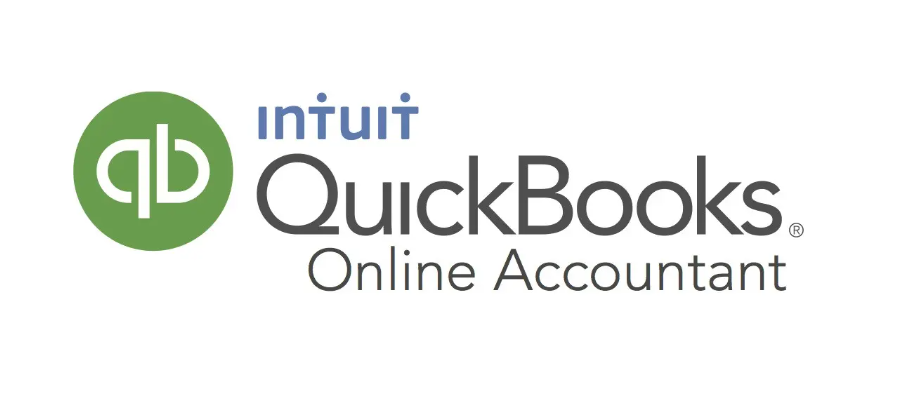
A quick overview of accounting software
QuickBooks is a household name in accounting software, a reputable brand that has delivered time and time again. QuickBooks is widely used by various types of businesses: it covers a variety of small business needs as well as caters to large businesses. QuickBooks Online Accountant is specifically designed to help you and your team manage the accounts of your clients. It’s a cloud-based platform that allows you to connect to all of your clients’ QuickBooks Online accounts. The tool also has a mobile app.
Key features of the software
Team management and workflow
QuickBooks Online Accountant’s dashboard neatly puts together your clients, team, and work categories, making it very intuitive to navigate.
What’s especially helpful is that you don’t need to log in and log out for each of your clients’ accounts, you can simply browse between multiple windows in QuickBooks as all your clients are listed in one central place.
Your QuickBooks dashboard displays all your team members as well. Here you can add new users and grant or restrict access to your client’s books in QuickBooks the way you see fit.
Project management tools in QuickBooks let you create projects and assign tasks to your team members, making the workflow streamlined and centralized.
Easy document management to eliminate manual work
Sharing documents in QuickBooks is simple and transparent, as for each client you have a list of all shared documents. You can also push notifications for document requests, should you need to. Sharing important documents in QuickBooks Online in real time allows you to save yourself the worry and hustle of sending countless emails with the latest version and keeping track of all shared correspondence.
Accounting tools: simplifying accounting processes
Accountant Toolbox which looks like a little briefcase on your dashboard is one more feature you might find useful in QuickBooks. There, you can find a list of accounting processes like reclassifying transactions, reconciling, closing books, creating a chart of accounts, and many others.
Bank transactions are also made easier by automatic bank feeds and rules that you can pre-set in QuickBooks Online.
Great value feature to level up your accounting services
With the QuickBooks software, you can tap into a host of growth and training opportunities offered by QuickBooks ProAdvisor resources. You can reap the benefits of webinars, tutorials, virtual conferences, and life events to improve your skills and connect with your professional community. Through the training programs, you can become QuickBooks Certified and have your company listed in their Find-a-ProAdvisor directory for free, boosting your exposure and growing your client base.
Even though some other software offers similar types of opportunities, it’s QuickBooks’ popularity across the business world that can provide great value to your professional development and outreach.
Software pricing
Accountants and bookkeepers get various discounts for QuickBooks subscriptions if they use QuickBooks Online Accountant. All they need to do is sign in and add their clients. This way, accounting professionals can buy QuickBooks subscriptions for their clients at a discounted price and get up to 50% off for the duration of these subscriptions. The starting price for businesses for the basic plan is $17 per month, but they can enjoy the first 6 months at the price of just $1. Check QuickBooks’ website for additional pricing details.
3. XERO HQ
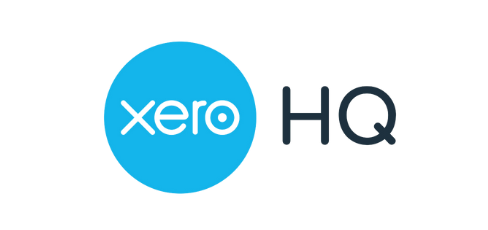
A quick overview of accounting software
Xero took a different approach to meet your bookkeeping and accountancy needs by creating an ecosystem with a master software called Xero HQ and other designated apps like Xero Practice Manager or Xero Workpapers that handle different sides of your small business.
Key features of the software
Team management and easy accounting workflow
With Xero HQ, you can assign different access roles to your team members to make sure that the right books and accounts are shared with only those that need them. With the single role of master administrator, you hold the keys to the most important aspects of your practice.
To manage the day-to-day tasks of running your practice, you need Xero Practice Manager that can help you assign tasks, create timesheets, set invoices, and do many other things.
The client list in Xero HQ shows all your clients, even if they aren’t a Xero organization. However, you’ll need to have them set up as a Xero organization to access their Xero account, where all accountancy and bookkeeping tools can be found.
Data management
The software has an intuitive dashboard with solid functionalities. The ‘Ask’ feature lets you request documents and data from your clients in a secure manner, using login credentials. If your client wishes to forward the request to another party, they’ll also need to create a login to access to send documents. Even though this approach adds a task, it ensures that all your data is secure.
Great value feature to ease accounting
A very interesting functionality called ‘Explore’ lets you do just that, explore your clients by the platforms and banks they use, as well as the type of industry they operate in. This gives you a concise report on your clients’ main characteristics, providing directions for where to best put your training and marketing efforts.
Software pricing
Accountants can use Xero HQ on condition that they become members of the Xero partner program. Joining the program is free but you need to get training and certified, as well as build and maintain your Xero partner status. Note that apart from promoting Xero you’ll have to have at least one paid client Xero subscription, or be invited into at least one paid client Xero subscription. Pricing for paid subscriptions starts at $25 per month.
4. Sage Accounting – Accountant Edition
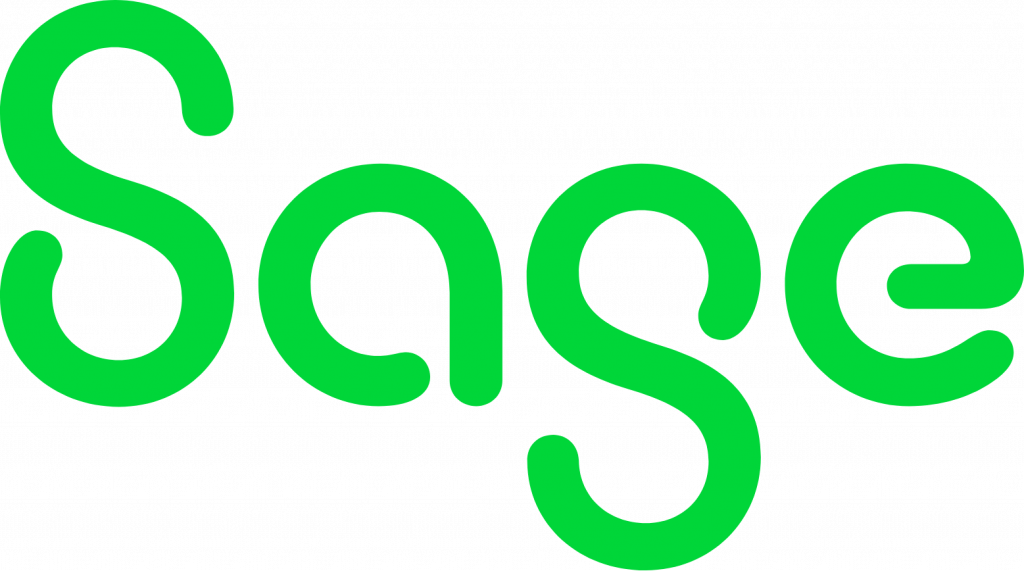
A quick overview of accounting software
Sage Accounting with its Accountant Edition gives you an all-in-one solution with cloud-based software where in a single portal you can access all your client’s data online from your computer or mobile devices (Sage Accounting has a mobile app).
Key features of the software
Team management for easy access to the books
The onboarding of your clients is easy and takes only a few steps, after which you can assign access to your new client’s books and accounts to your team members. If your small business is fast-growing or you’ve already established a large client base, having the unlimited number of users feature could be an attractive option here. It’s important to note that it’s available only with Sage Accounting subscriptions for your clients.
Sage lets you connect to a variety of apps that can smooth out other parts of your accounting and bookkeeping business.
Accounting tools: transactions import, reports, invoices
This software lets you connect your clients’ bank feeds to import transactions. You can use bank default rules or you can create your own to adequately categorize the transactions.
Another helpful feature is custom reporting which can give insights into your clients’ financials and provide some ideas for growth. The software provides a variety of reports – essential reports and detailed reports, such as P&L, Balance Sheet, Sales by Day, etc.
Invoicing with Sage Accounting is simple. You can set up automated invoices for your clients’ payments and have one less thing to take care of. The software uses Invoice Payments powered by Stripe. This way, customers can make payments to you directly from their invoices, which, in turn, helps to automatically reconcile it into Accounting.
Great value feature for bookkeeping
While some of your documents, like bank feeds, can be easily imported, other types, like receipts, are handed out in paper form and need manual data entry. Here comes the AutoEntry feature, which can deal with exactly this tricky and time-consuming type of data. All you need to do is scan or take photos of any documents, like invoices or receipts, and send them through the AutoEntry feature. That’ll get the data extracted from the document straight into your accounting system.
Software pricing
Sage Accounting offers two plans and the pricing for the basic plan starts at $10 per month. However, there is a 70% discount available for the first six months if you sign up for the upgraded plan – this way, you’ll enjoy the software at the price of $7.60 a month. Pay attention that once the discounted period is over, you’ll pay $25 per month.
5. Freshbooks
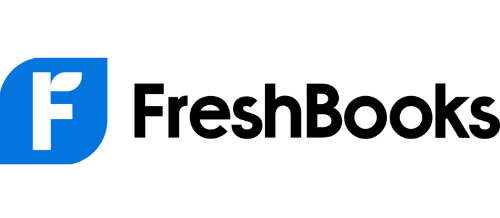
A quick overview of accounting software
Freshbooks provides a set of accounting and bookkeeping tools and adds features that help your company run smoother. Let’s review the software.
Key features of the software
Client payments and invoices
Freshbooks offers easy invoicing. The payments your clients make towards your services are made easy through customized, recurring invoices and pre-scheduled auto-billing. Your clients can make payments straight from the invoice you sent, using credit cards, making it a very fast and convenient way to pay. Also, due to high-level encryption, both you and your clients can be sure that these online payments are secure, and their credit cards data is safe.
Other features like late payment and late fee reminders can be automated. So you don’t have to keep track of late payments as the whole process can be pre-set to fit your specific requirement.
Accounting tools: double-entry accounting and reports
Apart from your standard accounting features, Freshbooks provides Industry-standard double-entry accounting which supports a host of records, such as Cost of Goods Sold (COGS), General Ledger, Bank Reconciliation, Bank Sheets, and many others. It ensures that your debits and credits are accurately recorded.
You can run major reports, such as P&L, Sales Tax Summary, Accounts Aging, Payments Collected, Accounting Reports, etc. any time, plus filter them by client, team member, or date, and much more.
Pre-populated Charts of Accounts allow your clients to have a better understanding of their financials and give them a transparent and easy-to-follow guideline for sorting their transactions into respectable accounts, speeding up the whole process.
Managing expenses
The software allows to track every dollar, which means your clients’ books are always ready for tax time. With Freshbooks, you can leverage receipt photos, use email receipts and forward them to your account, as well as easily import expenses from your bank account. Best of all, you can organize them and assign them to clients.
Great value feature
Freshbooks Mileage Tracker is a very interesting feature that lets you track your business mileage. Whether it’s a conference you’re attending, work supplies you’re buying, or a client you’re meeting, the app automatically logs in your trips, saving it in your travel history. Keeping a record of these types of expenses is vital, as it can help your business by lowering your taxable income. The app even shows you a potential tax deduction for each of the trips you make, as well as provides you with downloadable reports.
Software pricing
Freshbooks offers flexible pricing. There are four plans available, a monthly plan with basic functionality starts from $8.50, with custom pricing available at the Select plan for businesses with complex needs and lots of clients. You’ll also get a discounted pricing for 6 months if you sign up for the Lite, Plus, or Premium plans – they’ll come at 50% off. Yearly pricing starts at $132.60 with an additional 10% off.
Now that you’ve got the list of the best accounting software, you might be wondering how to make the right choice for your accounting practice. That’s why in the next section we pay attention to the key elements you need to keep in mind.
Navigating the software: how to choose the right accounting software for your business?
The times when we had one accounting software for all types of businesses are gone, and for a good reason. Nowadays, you can assess your needs and choose the software that’s best for your accounting firm. There are many elements to consider, so we’ve grouped them into 3 neat categories to make the process more streamlined for you. Let’s review them.
Your accounting business
First, it all starts with the size of your company and the number of employees. Some software charges more for adding additional employees to the plan, while others grant access to your entire team. With a fast-expanding business, it might be wise to choose a solution where you don’t have to constantly add new members and pay a fee each time.
Pay special attention to pricing. The price tag is usually attached to the number of features or the number of users. While having a plethora of features is great, if you use only 30% of them, maybe just go with a simpler and cheaper solution. On the contrary, if you cater to a wide variety of needs, choose the software that accomplishes them all, to cut down on unnecessary technologies and multiple subscriptions. Additionally, it will help your team learn faster and work more efficiently. This might be a small price to pay for the convenience your software offers.
Nowadays, we’re often on the go, so having quick access to mobile support might be very helpful as well. You might want to have 24/7 user support like the one Synder provides so that your employees can resolve issues fast and with confidence.
Your clients
Does your company cover a variety of clients’ needs or, quite the opposite, cater to a niche? Do your clients need both accounts payable and accounts receivable? Do you need small business accounting software or a more customizable solution targeted at larger businesses? If it’s the former, you’re going to need a jack-of-trades kind of software, if it’s the latter – a more specialized one.
And that’s not the only question you have to answer when considering your clientele. What kind of bookkeeping do your clients usually require? Does it support the necessary mode of syncing data? Is the software you choose able to manage it all? Can it solve specific issues such as exporting Stripe Loans, for example? How about special forecasting features? This functionality gives you a tool to provide your clients with business insights and help them grow their businesses.
The market
Both your company and your clients are functioning within the wider world, be it an economic situation, change in law, or available technologies.
All reputable software needs to be compliant with the various regulatory bodies within the country/state. To save yourself worry or inconvenience, make sure the software you use follows all the necessary regulations and regularly performs compliance updates.
Emerging technologies are really taking the market by storm, so the functionalities that weren’t available last month might become a new feature today – do look out for them. Developers are working hard to make the life of accountants and bookkeepers easier and develop top accounting software. Speak up and let software providers know what you’d like to see improved. Often, it’s your feedback that shapes new features and updates.
Well, the criteria are clear. Why bother spending time on choosing the software in the first place?
All the benefits of accounting software for accounting and bookkeeping professionals
Accounting software offers several benefits for accountants, enhancing their efficiency and effectiveness in managing financial tasks.
Time-saving
Accounting software automates many manual tasks, such as data entry, calculations, and report generation. It significantly reduces the time spent on routine accounting activities, allowing accountants to focus on more value-added tasks. This way, you get more time you can spend on expanding your client base and growing your business in general, including diversifying the services you offer.
Accuracy
By automating calculations and minimizing human errors, accounting software improves the accuracy of financial data. It reduces the risk of miscalculations, data entry mistakes, and transposition errors, leading to more reliable financial information.
Streamlined processes
Accounting software provides a centralized platform to manage various financial processes, including bookkeeping, invoicing, budgeting, and financial reporting. It streamlines workflows and simplifies complex tasks, saving lots of time and making it easier for accountants to handle multiple activities efficiently.
Financial analysis
Advanced accounting software often includes built-in tools for financial analysis and reporting. Accountants can generate customized reports, track key performance indicators (KPIs), analyze financial trends, and gain insights into the organization’s financial health. This facilitates informed decision-making and strategic planning.
Data security
Accounting software typically includes robust security measures to protect sensitive financial data. It ensures that financial information is stored securely, preventing unauthorized access or data breaches. Regular backups and data encryption further enhance data protection. Remember that your clients need insurance that their information is unbreachable.
Collaboration and accessibility
Cloud-based accounting software allows accountants to collaborate with team members and clients in real-time. Multiple users can access and update financial information simultaneously, fostering collaboration and enhancing communication within the organization. It also provides the flexibility to work remotely and access data from anywhere with an internet connection from any device with the help of a mobile app.
Compliance and reporting
Accounting software often incorporates features to help with regulatory compliance, such as tax calculations, automated tax form generation, and adherence to accounting standards. This simplifies the preparation of financial statements and ensures compliance with legal and regulatory requirements so you’re ready come the tax season time.
Scalability
As businesses grow, their accounting needs become more complex. Accounting software can accommodate the expanding requirements by scaling up its functionality. It can handle larger volumes of data, support additional users, and adapt to changing business needs.
Final thoughts on choosing the right accounting software for your business
Choosing the best accounting software for your accounting or bookkeeping business is a fundamental decision to make. The tool you pick will become your trusted companion.
The above descriptions provided an overview of features for each software so that you can see the direction that a particular technology points toward. As we’ve shown, some tools can automate your work and save you tons of time, while ensuring accuracy. Others can help you manage your team and run your business smoother or even give you insights for improvement and growth.
Having seen some great examples of features, create your own list of must-haves and nice-to-have features. Research in more detail those that spark your interest, review their pros and cons. Talk to the support team, to find out the ins and outs of the software and also to get an understanding of their customer care. We’re sure that at the end of this journey, you’ll find the perfect software for your accounting business.

%20(1).png)






Amazing Article Thank you for sharing the knowledge about the Bookkeeping Software, keep posting.
A really comprehensive list. Thank you for compiling it. It’s so important to find software that grows with your company and is adaptable. It’s why I only invest in modular pricing for accountant payroll software. The software for accountants is consistently lower than software services with monthly subscription fees.
Amazing article really enjoyed reading it!
Really helpfull blog, Thanks for sharing!